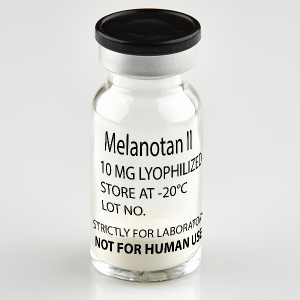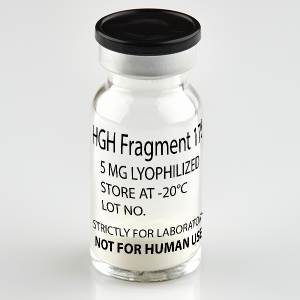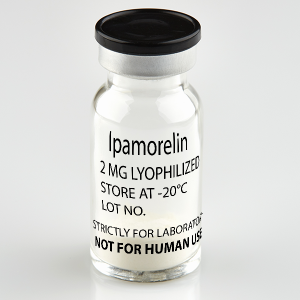Peptide Blog
Melanotan 1 is a synthetic analogue of alpha-melanotocyte stimulating hormone. It is used clinically, in Europe, to prevent sun-related skin damage (i.e. phototoxicity) from occurring in people suffering from erythropoietic protoporphyria. Though initially developed as a sunless tanning agent, melanotan 1 has been found to have a number of physiologic effects on blood pressure, feeding behavior, central nervous system function, and more. The peptide is in phase 3 clinical trials for the treatment of polymorphose light eruption and is in phase 2 clinical trials for the treatment of actinic keratosis (a specific type of skin damage caused by the sun) and its more serious counterpart, squamous cell carcinoma.
Melanotan 1 is very similar to naturally occurring alpha melanocyte stimulating hormone (alpha-MSH). Alpha-MSH is primarily known for its influence on melanocytes, the cells in skin and hair responsible for pigmentation. This function is mediated via strong binding to melanocortin receptor 1. Alpha-MSH is a non-selective full agonist of melanocortin receptors 1, 3, 4, and 5.
Melanotan 1 differs from alpha-MSH by a single amino acid and was actually first developed as a sunless tanning agent. Research into melanocortin receptors and their effects was relatively limited at the time and scientists quickly discovered that while melanotan 1 did indeed cause pigmentation, it also increase sexual arousal, boosted appetite, and altered baseline metabolism. Subsequent study of melanotan 1 and other melanocortin-binding proteins helped scientists to better understand the melanocortin signaling system.





